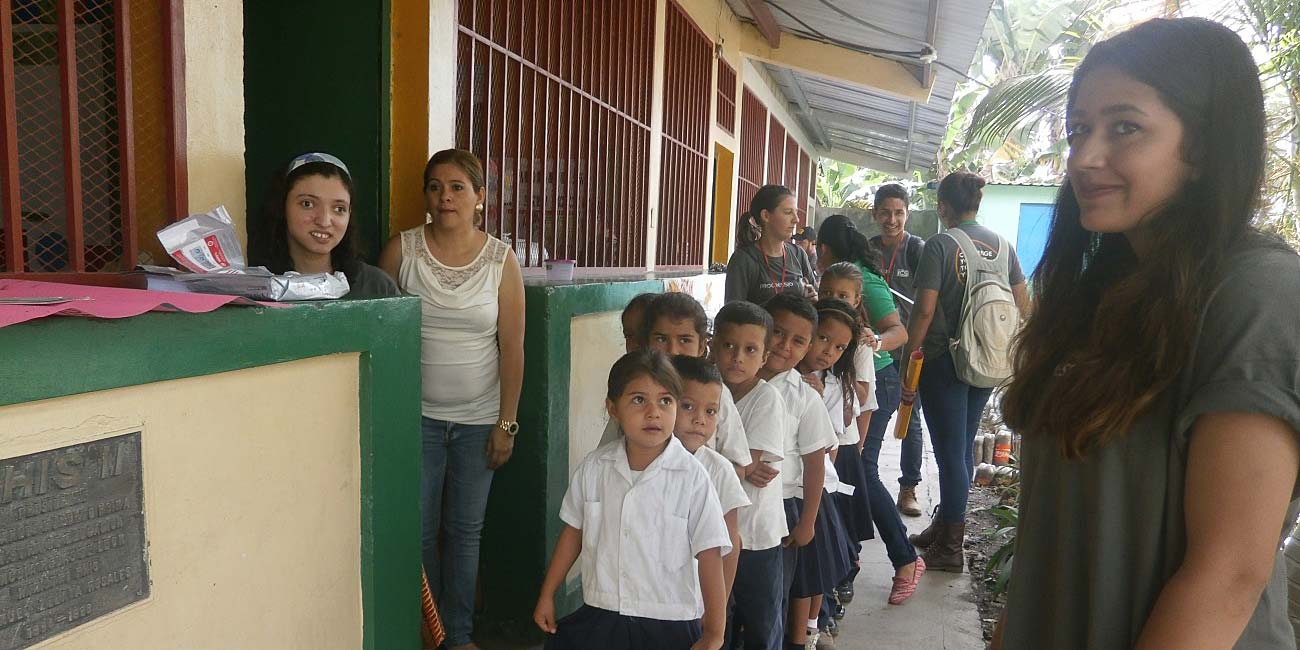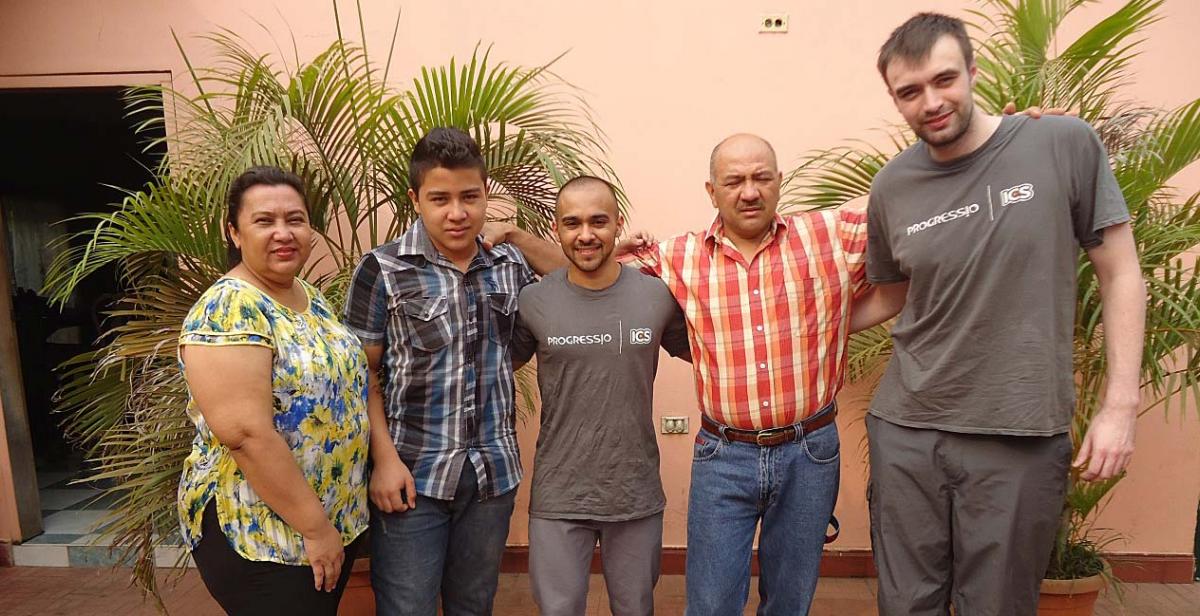This week I’ve decided to write a different type of blog. I interviewed the host family that I’m staying with and wanted to gain an insight to their perspective on the educational system and security in Honduras.
My host mother Glenda Lizette Medina, is a teacher here in Catacamas, She teaches 5th grade and has done so for 28 years. As well as being an educator, she is also counsellor at her school. I asked Glenda what she feels are the positive and negative aspects of the current educational system. Her reply was that there are many well qualified teachers; however a problem is that higher education is not an option for many students that can’t afford the expensive tuition fees, which is a shame and is something that needs to change sooner rather than later.
Glenda spoke to me about her time working as a counsellor. She told me that many children have parents that live away from home, the children either live with one parent or with their grandparents. This is because there are usually better job opportunities in the cities, such as Tegucigalpa, and in the United States. Around half of Glenda’s students either have a parent or have both parents that don’t live at home with them. It is difficult for children to live so far away from their parents, it can cause emotional distress and feelings of abandonment, unfortunately this is not uncommon in Honduras and Glenda supports a number of children in this situation. Glenda also teaches adults how to read and write at her home. There is a high adult illiteracy rate in Honduras compared to some developed countries, but this problem is becoming less and less common.

For the second part of the interview I asked Don Alexis, Glenda’s husband to join us to discuss their thoughts about safety in Honduras. I asked whether they thought Honduras is dangerous, they explained that every country is dangerous in particular areas. Here the most dangerous places are San Pedro Sula, Tegucigalpa and La Ceiba. One of the biggest factors that cause these places to be dangerous is the high unemployment rate and few opportunities, which leads people to crime to earn money. I asked how they felt when people say that Honduras is dangerous; they said they don’t like it as not every place is dangerous and not all the people are criminals. I wanted to find out what Honduran culture is all about, they said it was the people; Hondurans are affectionate, hard working and have a good sense of humour. I have lived with my host family for about a month now and I agree with their answer, my family has been very kind and caring towards me, it’s been a privilege to get to know them.
It’s true that Honduras can be a dangerous place like many other countries in the world, but there are also amazing places with staggering natural beauty and good people. It has been a pleasure to experience Honduras and I think it will be difficult for me to leave.
Written by ICS volunteer Pritesh Pankhania



